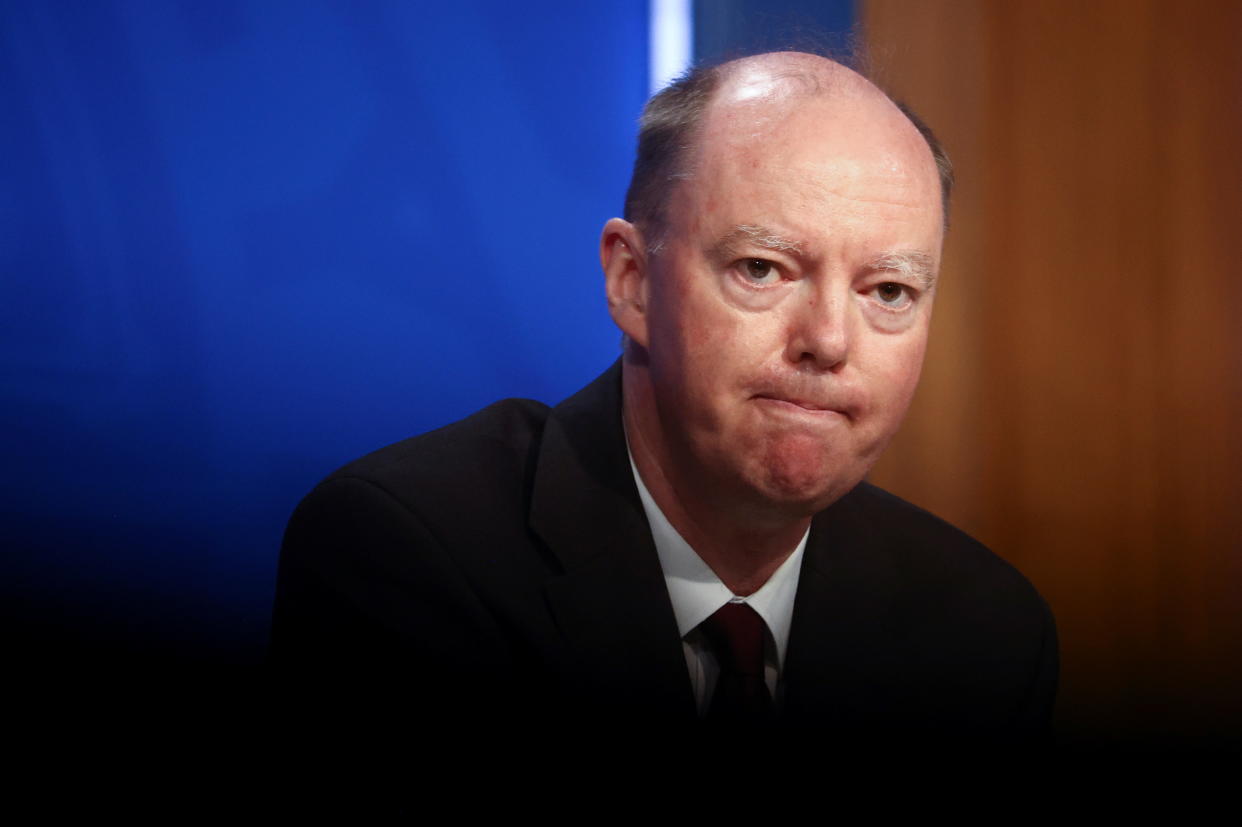The three things that could trigger winter Covid restrictions, according to Chris Whitty
In its “autumn and winter plan” for dealing with coronavirus in the coming months, the government outlined a “Plan B” to be used if the NHS finds itself under unsustainable pressure.
It could see the return of small-scale restrictions in England. These include Covid-19 status certificates at venues with large attendances, legally mandating face masks in certain settings and asking people to work from home.
However, the document is light on detail about the exact circumstances which would lead to these measures being implemented.

Fortunately, Prof Chris Whitty, the UK’s most prominent Covid scientist, gave us more of an idea at Tuesday’s Downing Street press conference which followed the release of the document.
“In terms of what might trigger change,” he said, “[these] are the things which I think are the most likely.”
1. “The absolute numbers going to hospital”
For context, at the peak of the second wave on 12 January, 4,583 were hospitalised.
On 4 January, the date Boris Johnson plunged England into a third lockdown, 3,936 people were admitted.
On 9 September, the latest date for which government figures are available, 1,009 people were admitted to hospital with Covid.
2. “The rate of change”
Prof Whitty, England’s chief medical officer, said a sudden spike in hospitalisations would force ministers to make a decision.
“A gradual drift up is one thing, [but] if you suddenly saw a very rapid increase then you have to consider taking earlier action.”
3. “The overall state of the NHS”
“Going into winter there tend to be greater pressures,” Prof Whitty said.
Elsewhere in the press conference, he said people do not need a medical degree to know autumn and winter is a time when other respiratory viruses, such as flu, are “hugely advantaged”.
Meanwhile, Sir Patrick Vallance, the UK's chief scientific adviser, also said the UK is currently at a “pivot point” in the pandemic and if the situation worsens quickly, then ministers must “go early”.
In an apparent message to Boris Johnson, who was standing next to him, Sir Patrick added: "You can’t wait until it’s late because you’ve got to do more.”
Since the start of the pandemic. Johnson has repeatedly been accused of imposing restrictions too late.
For example, Prof Neil Ferguson, one of the UK's leading epidemiologists, said it was "unarguable" that 30,000 lives could have been saved if the prime minister had imposed the first lockdown earlier. It was Prof Ferguson's modelling which eventually convinced Johnson to announce the shutdown on 23 March.
Read more:
Boris Johnson is warned UK could face another large wave of Covid hospitalisations
'One in each arm': Covid and flu vaccines can be given together, top medic says
Commenting on the Plan B measures on Tuesday, Dr Simon Clarke, associate professor in cellular microbiology at the University of Reading, said: "With such very high numbers of community infections, things could get out of hand very quickly and it may prove impossible to close the stable door before the horse bolts."
The "Plan A" measures announced by the government include a booster vaccination campaign for over-50s, a suggestion of compulsory Covid and flu jabs for NHS and social care workers, people being encouraged to meet outdoors and businesses being urged to check customers' Covid status.
The government has insisted Plan B "would only be enacted if the data suggests further measures are necessary to protect the NHS".


